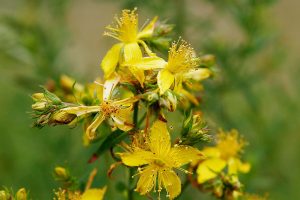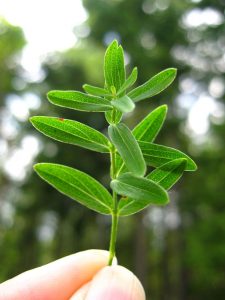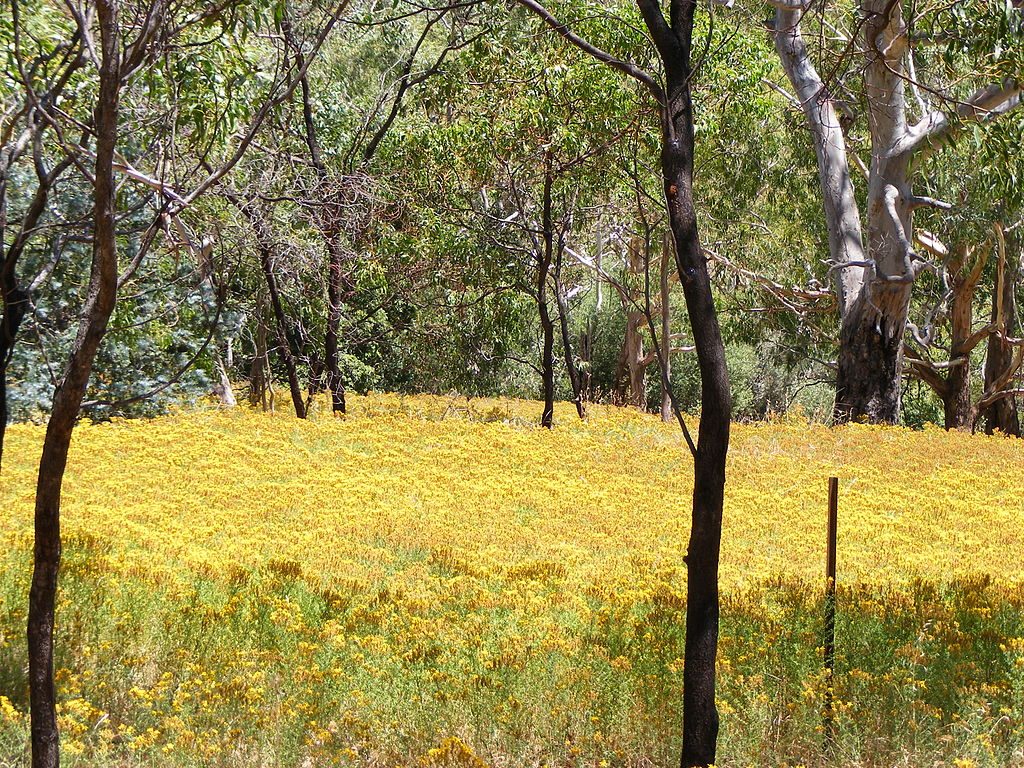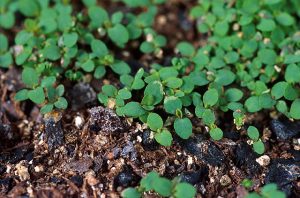St. John’s wort may help manage stress by improving mood and anxiety.

- Improving anxiety and mood. St. John’s wort seems to function like a nootropic by modulating neurotransmitters that affect mood and anxiety, such as GABA, serotonin, and dopamine.
Overview

Herbalists in the 19th century eventually began to note curious health benefits of the herb: it appeared to ease pain as an ointment, clean wounds as an oil, and facilitate recovery from a handful of gastrointestinal discomforts.
Today St. John’s wort extracts are used to manage a broad scope of conditions, including depression, ulcers, nervousness, sleep disorders, anxiety, and mood issues.
How St. John’s Wort May Help With Stress
Inhibitting neurotransmitter reuptake
St. John’s wort seems to simultaneously inhibit the reuptake of multiple neurotransmitters that affect mood and anxiety, making them more effective. In particular, it seems to influence: 2
- Serotonin. The hyperforin content of St. John’s wort seems to be particularly adept as a serotonergic 5-HT3 and 5-HT3 receptor antagonist.3
- Gamma-butyric acid (GABA). The hypericin in St. John’s wort acts as a GABA receptor antagonist.4
- L-glutamate. The adhyperforin in St. John’s wort may inhibit uptake of L-glutamate, dopamine, serotonin, and noradrenaline.5

St. John’s Wort Benefits & Uses for Stress

Indeed, according to the guidelines of the American College of Physicians, the potential impact of the herb is comparable to that of manufactured antidepressants.
All in all, St. John’s wort seems to be building a reputation as an effective aid for a variety of mood problems and disorders, including excitability, nervousness, seasonal affective disorder (SAD), and depression.
Research
Animal Research
Research indicates that St. John’s wort may be capable of:
- Reducing anxiety. A St. John’s wort extract at 100 and 200 mg/kg showed significant anxiolytic effects in rats.6
- Improve mood. St. John’s wort extracts were found to enhance mood in rats and mice via an antidepressant effect.7
Human Research
Clinical studies indicate that St. John’s wort may be a safe way to decrease anxiety and improve mood, particularly in the context of mood disorders.
St. John’s wort (900 mg) may reduce depression from seasonal affective disorder
In this randomized, placebo-controlled investigation patients of major depression with a seasonal pattern were given either placebo or 900 mg of St. John’s wort combined with a two-hour bright or dim light therapy every day for 4 weeks. The researchers found a significant drop in the Hamilton Depression Scale score in the St. John’s wort group.
- The study concluded that “pharmacologic treatment with hypericum may be an efficient therapy in patients with seasonal affective disorder.”8 Hypericum would appear to be an effective treatment for SAD.”9
St. John’s wort as LI 160 (600 mg) may reduce anxiety from somatic disorder
In this multi-center, randomized, placebo-controlled, double-blind investigation, 151 patients with somatization disorder were given either a placebo or 600 mg per day of St. John’s wort LI 160 extract for 6 weeks. The LI 160 supplement was superior than the placebo according to various anxiety measures, such as Clinical Global Impression, Hamilton Anxiety Scale (HAMA) total score, HAMA subscore psychic anxiety, Hamilton Depression Scale, Self-Report Symptom Inventory 90 items – revised (SCL-90-R), and SCL-90-R, subscore somatic anxiety. Specifically, the HAMA-SOM score for the LI 160 group decreased to 6.64 compared to the 11.97 for the placebo group.
- The study concluded that “data from this trial show excellent efficacy and tolerability for LI 160 in somatoform disorders.”10
St. John’s wort (900 mg) may moderately improve obsessive compulsive disorder
In this open-label investigation, 12 people with obsessive compulsive disorder (OCD) were given 450 mg of St. John’s wort with 0.3% hypericin for a period of 12 weeks 2 times a day. Evaluations using the Yale-Brown Obsessive Compulsive Scale (Y-BOCS), the Clinical Global Impressions of Improvement scale (CGI), the Patient Global Impressions of Improvement Scale, and the Hamilton Rating Scale for Depression showed that 5 out of 12 participants were rated “much” or “very much improved” on the clinician-rated CGI, 6 were “minimally improved,” and only 1 had “no change.”
- The study concluded that “significant improvement was found with Hypericum, with a drop-in Y-BOCS score.”11
Dosage for Stress
- Research studies use St. John’s wort doses of 300 – 900 mg per day
- Supplements usually provide 300 mg doses standardized to 0.3% hypericin content
- St. John’s wort supplements can also come in a tea, liquid extract, and topical preparation form
Supplements in Review Says
- St. John’s wort extract 300 mg for stress.
We recommend St. John’s wort for improving anxiety and mood. Although it doesn’t affect stress directly, St. John’s wort can still be helpful by improving anxiety and depressive mood that are often involved in chronic stress.
Start with 300 mg of standardized St. John’s wort. Most clinical studies use between 300 and 900 mg of a St. John’s wort extract per day.
Very informative and concise.. Thank you..
I have bean taking St Johns 900 mgs before bed for several months.. It helps me tremendously with anxiety and racing toughts only a little with insomnia. . I have just started taking GLYCINE before bed 2000 mgs, to help with sleep and it’s other benefits.. I have read your article on it..I can find no info on taking these 2 together.. Do you know of any problems with this combination ? Or can you direct me to where I might find more info on this. Thank you